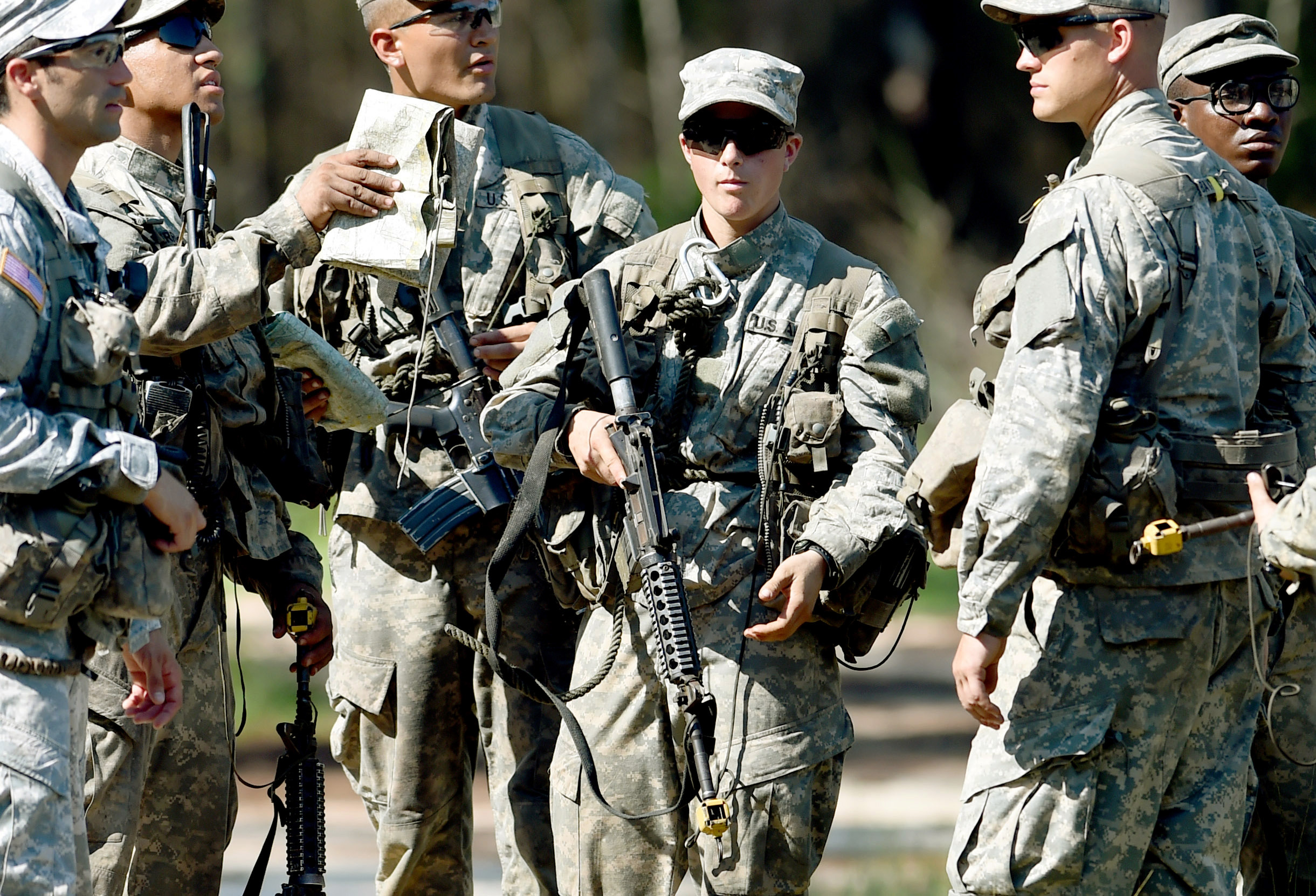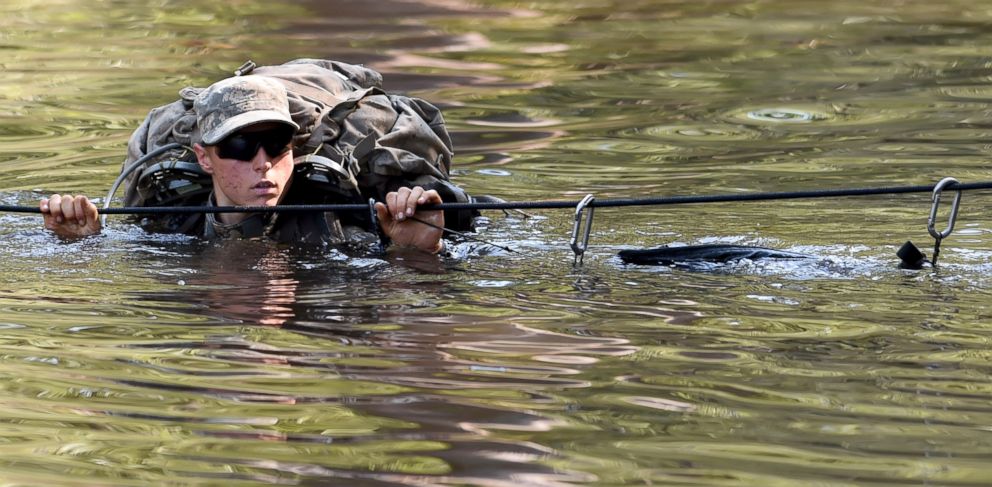How the 1st Women to Graduate Elite Army Ranger School Proved 'Skeptical' Men Wrong
The first two women to graduate the elite school share their experiences.
— -- Male graduates alongside the first two women to graduate the Army's elite Ranger School in Fort Benning, Georgia, admitted today at a news conference that they were "skeptical" of how women would perform in the 62-day, notoriously grueling course.
Some of the graduates shared the exact moment that female soldiers, 1st Lt. Kristen Griest and Capt. Shaye Haver, proved them wrong.
Two male Rangers both shared stories about how Griest and Haver, on separate occasions, eagerly helped carry the weight off of other male soldiers who felt they were going to give up during the Darby and Mountain phases of the course.
When other men were "too broken" and "too tired" to help, the women stepped up and even acted as if they wanted the extra weight, proving how motivated they were, the Rangers said.
Another Ranger said that he realized "these women are for real" after he saw Griest and Haver finish "well ahead some of the males and well ahead of the 60 other men" who didn't complete a 12-mile ruck marsh course during which they had to carry 50 pounds.
They were "carrying the same weight we were," he said. "That solidified it for me."

The 62-day course "pushes Ranger students to their mental and physical limits by forcing them to operate on minimal food and sleep," the Army said in a statement announcing the women’s successful completion of the course.
Though they will have earned the prestigious Ranger Tab for having completed the course, the two women will not be eligible to try out to serve in the 75th Ranger Regiment because women are not yet allowed to serve in that special operations combat unit.

The Ranger School was open to women just this once as part of ongoing military research on how to better integrate women into combat. That research will be presented to the Pentagon later this year for a final decision next January when Defense Secretary Ash Carter will decide whether to allow women to be eligible to serve in all combat units.
The two were among 19 women who initially began the months-long course as part of the Army’s ongoing assessment of integrating women into all combat units.




